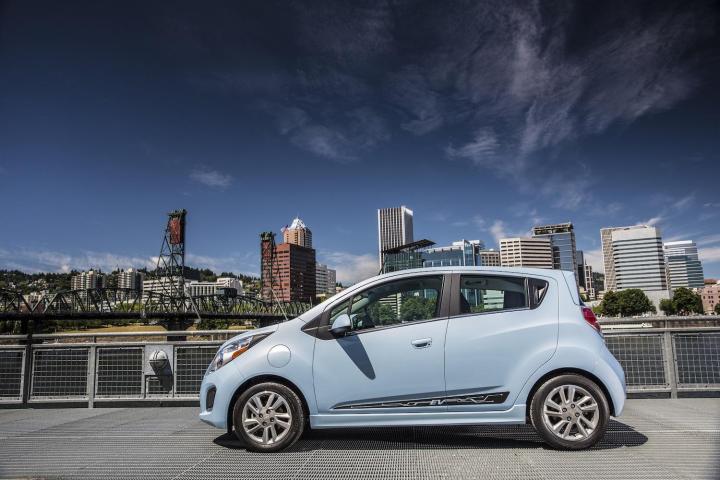
Just earlier this week, Volkswagen announced that it aims to become the world’s number one seller of electric vehicles by 2018. Right on the heels of that announcement, General Motors made its own EV futures claim.
In an interview with the Wall Street Journal, GM’s vice president of global product programs, Doug Parks, said that the General is planning to build an EV with a 200-miles range for right around the $30,000 price, which would be aimed directly at the next Tesla model.
As it currently stands, Nissan is the world’s top EV seller with its $28,800 LEAF. Nissan doesn’t seem to understand the desire to build a long-range EV, as EV technology is relatively expensive and most drivers don’t require more than 75 miles during a daily commute.
Tesla contends, however, that its batteries are cheaper per kilo-Watt-hour than that of GM or Nissan because it uses commodity battery casings rather than specialized battery packs. Tesla, however, has never divulged how much exactly its battery packs cost.
JB Straubel, Chief Technical Officer for Tesla, expects the energy density of Tesla’s batteries to increase by more than 20 percent in the next four years – just in time for Tesla’s mass-market car. This means that the range of the next Tesla could well exceed the 200-mile mark set by General Motors.
Is Tesla overstating its capabilities in order to remain relevant? If the company’s history is any indication, it very well could be understating, which could spell trouble for GM.
Both GM and Tesla have proved impressive in the last year. We thoroughly enjoyed both the Model S and the 400 pound-feet of torque packed inside the Chevrolet Spark EV. So we’re eagerly awaiting the result of an EV-off between the two automakers.


